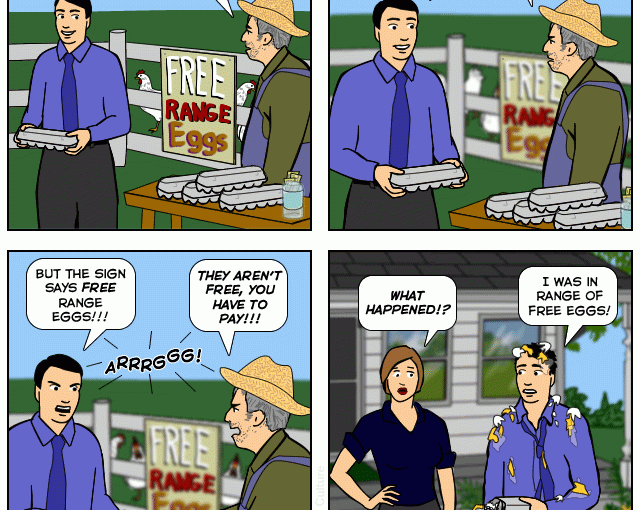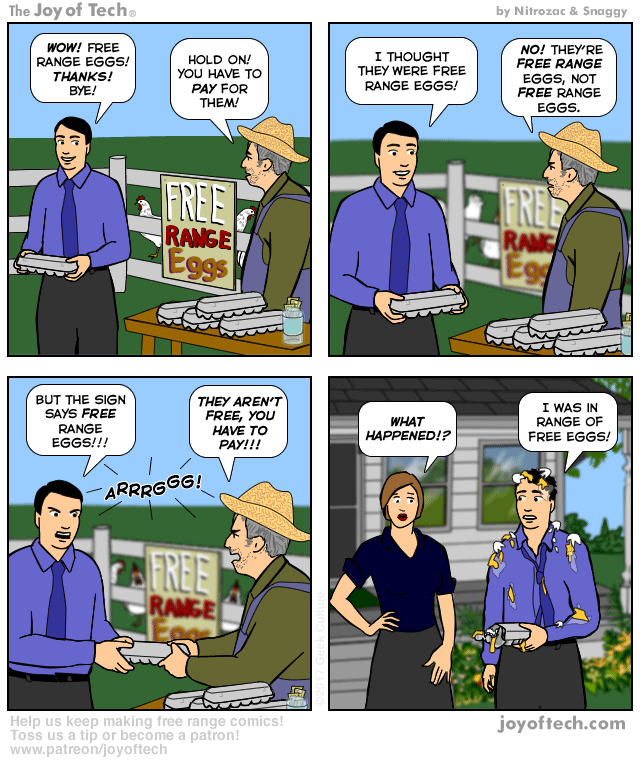Maybe I’m passing up a good opportunity here; after all, this comic is even about a point of grammar. But I’ve mentioned that solecism enough times that both of you dear readers should know how to get “your” and “you’re” correct by now, right?
Here’s today’s Dustin:
So here’s my question. Well, two: Putting your fingers in an “L” shape against your forehead is a sign in American Sign Language. What does the sign mean? and does it matter which hand you use?
If you happen to know, send me a note in the comments, would you?

